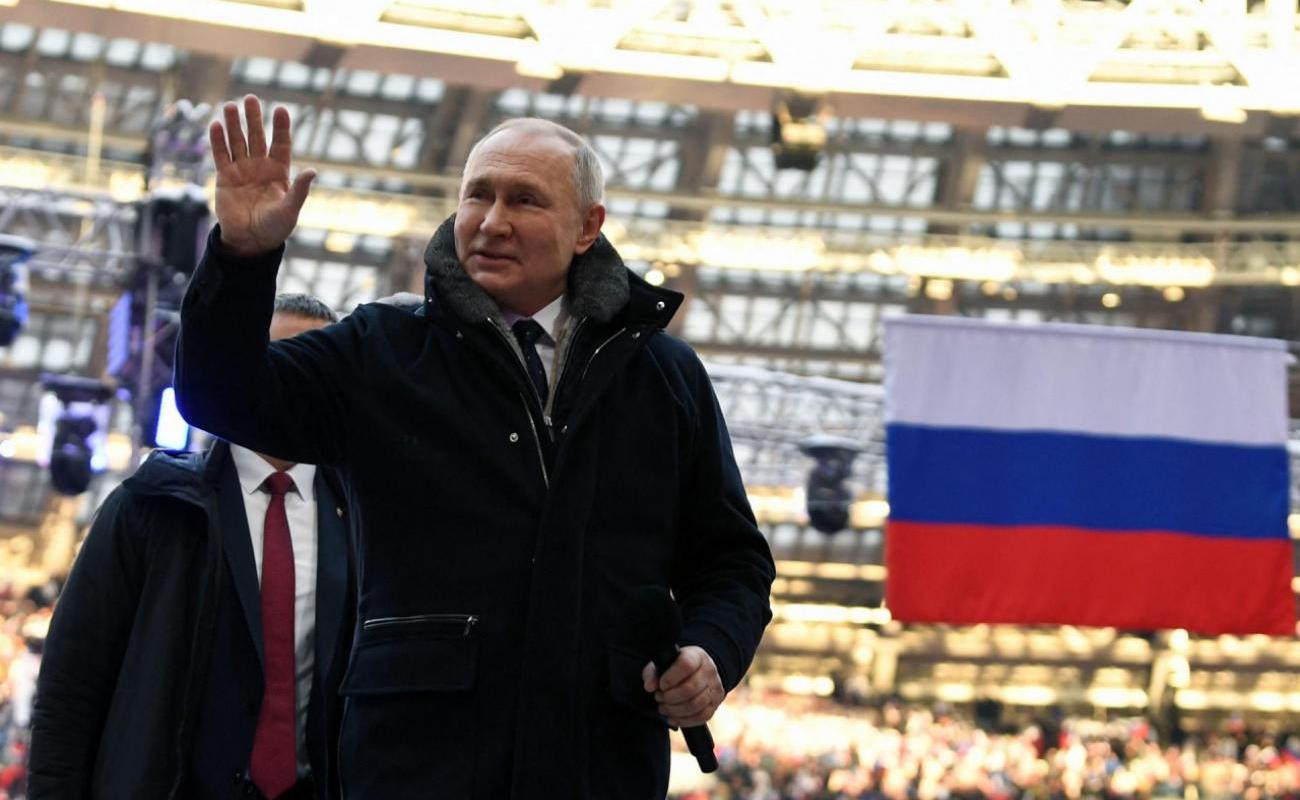Why Putin’s iron grip over Russia could be weakening
The Telegraph’s writers take stock of the war’s impact and the challenges lying in wait for Russia’s leader this year

Vladimir Putin lost the gas war in 2022. He is so far losing the oil war in 2023. The energy export revenues that underpin the Russian budget are in freefall.
If this continues for long, Putin will struggle to sustain offensive warfare in Ukraine. His industrial war machine is being strangled by two mechanisms: sanctions on energy exports and sanctions on hi-tech imports. Acting in symbiosis, the two together are remorseless.
Russian state earnings from fossil exports collapsed by 46 per cent last month as a result of the G7 oil price cap, imposed in early December. Putin can still sell his oil in Asia, but the West controls 90 per cent of the maritime system through insurance and finance. For all the bluster, the Kremlin is complying with G7 terms.
China, India and Turkey know he is a distressed seller. They are driving a hard bargain. Russian Urals crude is selling at a half-price discount of $40 a barrel on global markets, slashing the Kremlin’s main source of war-fighting rent. The G7 cap on diesel and petroleum products came into force this month. It tightens the noose further.
Putin was sitting on a fat cushion of hydrocarbon wealth and revenue through most of last year, hence the illusion of his reliant economy. He had a trade surplus of nearly 20 per cent of GDP. The budget was in surplus. The rouble was on steroids. He could fund his war without the need for austerity at home. Now he must choose.
The Kremlin budget flipped violently into deficit in January. Putin had to raid the national wealth fund. This reserve dropped from $186 billion to $148 billion (£154 billion to £123 billion) in a single month. He cannot maintain such a “burn rate” for long, even if the January data was distorted by lumpy military spending.
Putin’s spring offensive in the Donbas will have to deliver a knockout blow. If it stalls, he has no obvious means of funding slow military attrition.
Russia lacks a functioning bond market. He will have to raid the accounts of private companies – already starting – and to confiscate household savings via compulsory war bonds. His regime is then in danger.
The Kremlin may yet be rescued by China’s post-Covid reopening and Asia’s return to the skies. This could soak up limited spare capacity in the global oil market. Crude prices could rebound quickly to the $120-plus levels seen during the last commodity supercycle.
Putin might be tempted to turbocharge any oil crunch by slashing Russian output, hoping to gain on price more than he loses on volume. That could send oil to all-time highs and cause serious trouble.
But it would hurt China and India more than it hurt the West, and it would be the last throw of the dice. If it failed, he would have nothing left.
Europe survived last year’s gas war. It managed to cut use by 20 per cent without provoking a democratic revolt and without tipping the region or the world into recession.
We should come through the winter with gas stocks high enough to allow full restocking before next winter. The wildcard is the return of a hot dry El Nino this summer, playing havoc with Europe’s hydropower and nuclear reactors. That is in the lap of the gods.
The chances are rising that Europe can muddle through the oil and diesel war as well, no doubt with a few bruises and some de facto rationing, but otherwise largely unscathed.
There may well be a recession in the Western economies this year, but for different reasons. Central banks may overtighten in their belated zeal to choke inflation. But Putin’s ability to inflict economic terror is greatly diminished.
